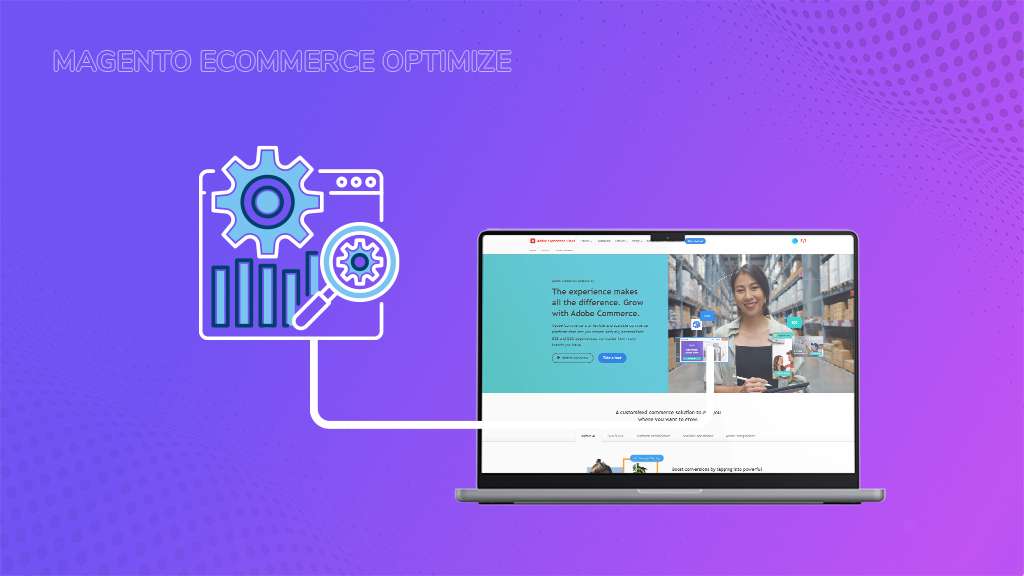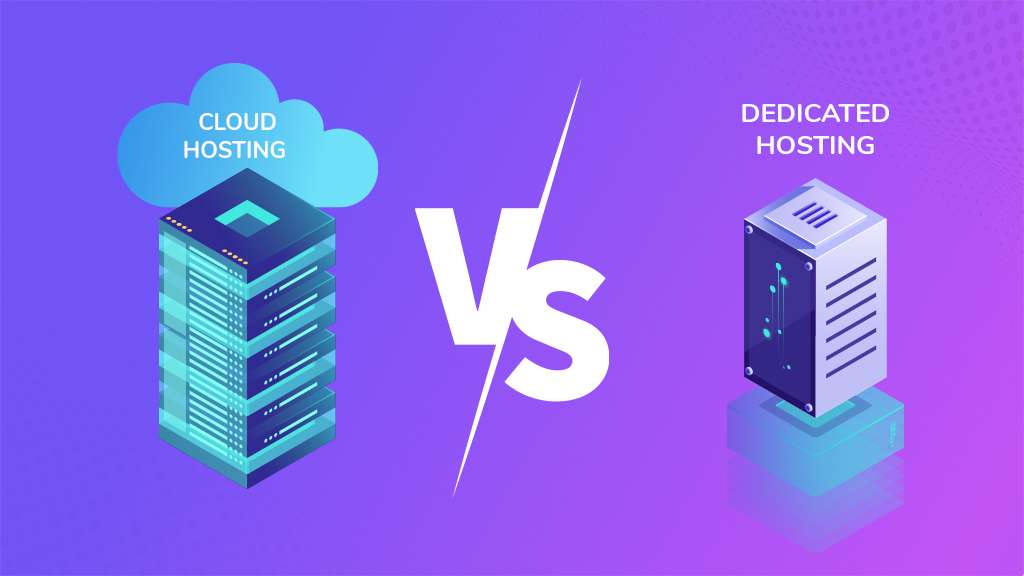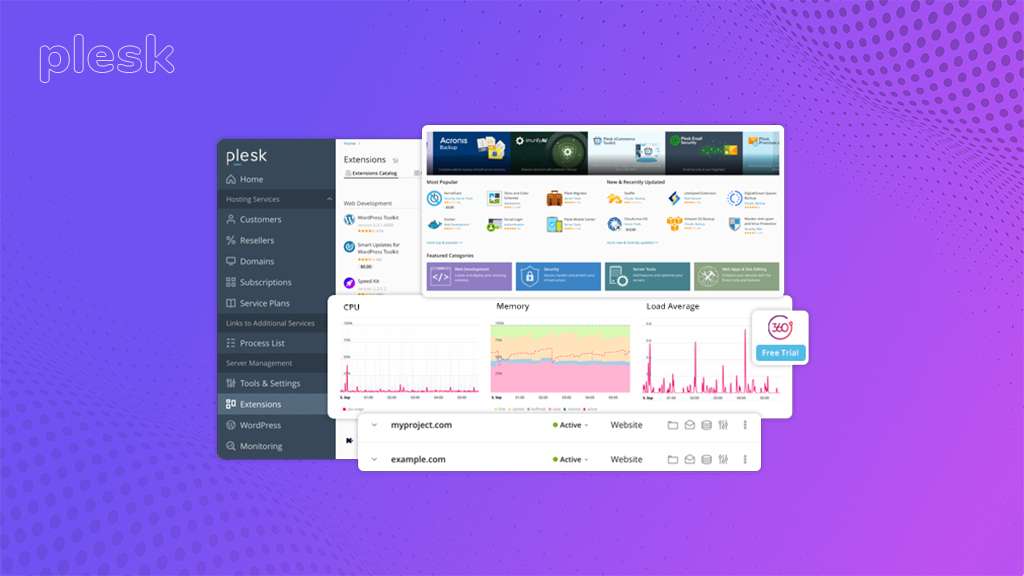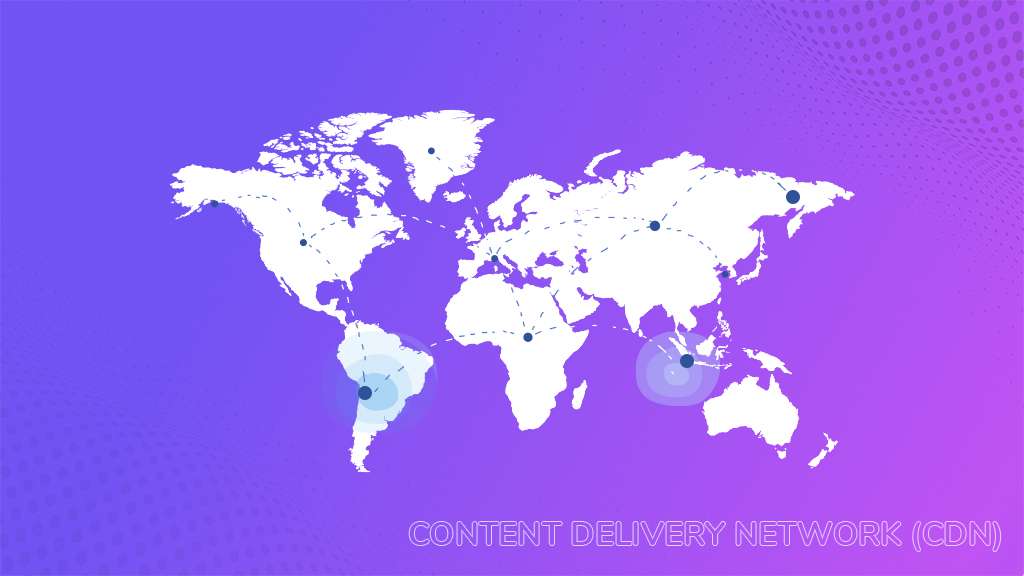
Content Delivery Network are like a worldwide team of servers that help deliver your website content. Instead of relying solely on your main server, CDNs have servers located closer to your audience that can quickly deliver images, videos, and scripts. This means faster loading times for your website, no matter where your visitors are. In this blog post, we explore what is CDN? and discuss its advantages and how it can greatly improve your website’s performance and user experience.
What is CDN?
A Content Delivery Network (CDN) can be likened to a vast network of mirrors strategically placed across the globe, each reflecting a copy of your website’s content. These mirrors, also known as edge servers, are distributed in various locations worldwide, ensuring that no matter where someone accesses your site from, they will always be directed to the closest mirror. By utilizing
this network of mirrors, a CDN significantly enhances your website’s performance and speed. When a user requests to visit your site, the CDN automatically directs them to the mirror server that is geographically closest to their location. This proximity ensures that the data has a shorter distance to travel, reducing latency and minimizing the time it takes for your website to load.
How does CDN work?
1. Origin Server
Think of it as the central repository housing all the original files of your website. Its primary function is to generate dynamic content and manage server-side processes.
2. Edge Servers
These are like smaller, strategically positioned repositories spread across the globe, each containing copies (cached versions) of your most popular static content such as images, videos, and scripts). Edge servers are optimized to deliver content quickly to specific regions, reducing the distance that your content needs to travel.
3. Exploring the Advantages
i. Reduced Latency
By serving content from geographically closer servers, CDNs significantly reduce the time it takes for data to reach users. This leads to faster loading times and improved responsiveness.
ii. Scalability
Content Delivery Content can indeed handle sudden spikes in traffic by distributing requests across multiple edge servers. This prevents your origin server from becoming overwhelmed and crashing.
iii. Improved Availability
Even if your origin server experiences issues, cached content on edge servers can still be delivered. This ensures that your website remains accessible to users.
iv. Enhanced SEO
Faster loading times and improved user experience can have a positive impact on your website’s search engine ranking.
v. Security
Some CDNs surely offer additional security features like DDoS protection and encryption, safeguarding your website from malicious attacks.
4. Without a CDN? The Slow Lane
Imagine a user in Japan trying to access a website hosted in the US. Without a CDN, their request has to travel to the US server to retrieve the content, and then travel back, resulting in slow loading times. This can frustrate users and negatively impact bounce rates.
5. Utilizing a CDN
By implementing a CDN, users in Japan can effortlessly connect to the nearest edge server, typically situated in Asia. If the content is already cached, it is promptly delivered. In cases where it is not cached, the edge server retrieves it from the US origin server and stores it for future requests. This process drastically reduces the distance that data needs to travel, resulting in remarkably fast loading times and a seamless user experience.
6. Active Traffic Distribution
Imagine the peak hours of traffic on your website. Without Content Delivery Content, your origin server may struggle to handle the influx of requests, leading to delays and potential service interruptions. However, with the assistance of a CDN, the traffic is efficiently distributed among multiple edge servers, easing the burden on your origin server and ensuring smooth operation even during sudden spikes in traffic.
7. Going Beyond Speed
Enhanced loading times, heightened responsiveness, and unwavering availability all contribute to a significantly improved user experience. When everything feels exceptionally fast and reliable, visitors are more inclined to stay engaged, explore your website, and ultimately become loyal customers.
Who can benefit from a Content Delivery Network?
While renowned giants such as Netflix, Facebook, and Amazon are prominent examples, the prevalence of CDNs might surprise you:
- 46% of the top 1 million websites rely on CDNs, meaning you have likely interacted with one unknowingly.
- Small businesses utilize CDNs to accelerate transactions, providing customers with seamless online shopping experiences.
- Streaming services like Netflix leverage CDNs to deliver uninterrupted, high-quality video content, ensuring an uninterrupted movie night for viewers.
- Banks and financial institutions rely on CDNs for secure and reliable access to customers’ online accounts.
- Travel websites and booking platforms employ CDNs to offer swift and efficient booking experiences.
Why should Small Businesses embrace CDNs?
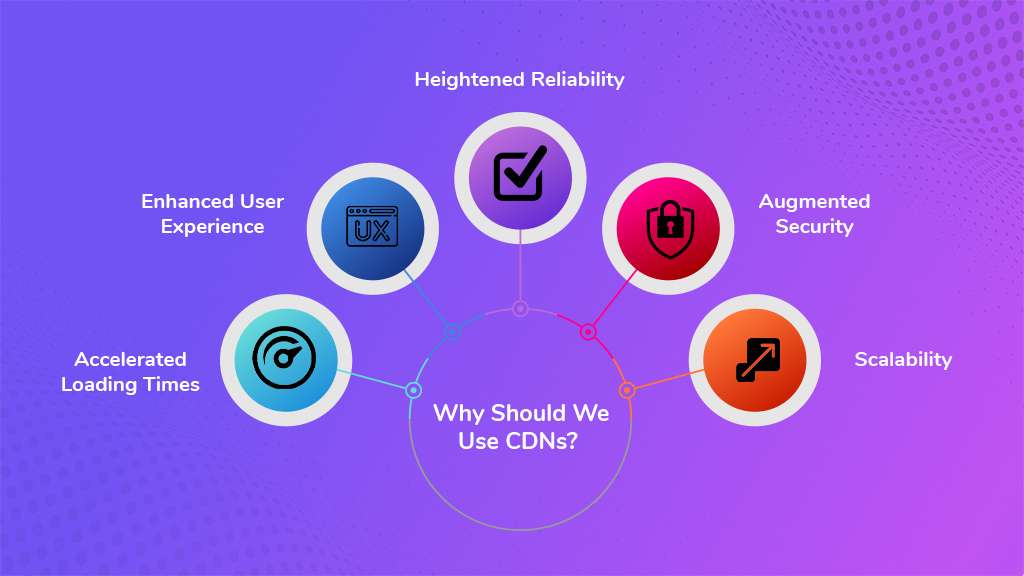
1. Accelerated Loading Times
Irrespective of visitors’ geographical locations, CDNs ensure that content is delivered from the nearest server, resulting in a faster and more enjoyable browsing experience.
2. Enhanced User Experience
Swift loading times translate into satisfied visitors, reducing frustration and minimizing abandonment rates.
3. Heightened Reliability
By distributing content across multiple servers, CDNs make websites less vulnerable to outages, ensuring consistent performance.
4. Augmented Security
CDNs indeed provide essential features like DDoS protection and encryption, safeguarding websites and user data from potential threats.
5. Scalability
CDNs possess the capability to handle sudden surges in traffic without compromising performance, making them ideal for small businesses experiencing growth or seasonal spikes.

Benefits of CDN
Users have come to expect immediate satisfaction, and websites that fail to meet these expectations face negative consequences such as high bounce rates, missed conversions, and frustrated audiences. This is where Content Delivery Networks (CDNs) excel, providing a powerful solution to improve website performance and expand global reach.
In 2024, utilizing a CDN offers several key advantages, which are explained in detail below:
1. Achieving Lightning-Fast Loading Times
i. Reduced Latency
CDNs distribute your website’s content across servers located in various geographic locations. This ensures that users are connected to the server closest to them, minimizing the distance data needs to travel and significantly reducing loading times. This is particularly important for international audiences and mobile users.
ii. Caching Magic
CDNs store frequently accessed content, such as images, videos, and scripts, on edge servers. This eliminates the need to retrieve these files from your origin server every time they are requested. By adopting a “cache-first” approach, CDNs further accelerate content delivery and enhance the overall user experience.
2. Embracing Scalability and Reliability
i. Handling Traffic Spikes
Do you anticipate surges in website traffic during sales, events, or seasonal peaks? CDNs are designed to seamlessly handle these spikes. Their distributed architecture ensures that your website remains responsive and available even under heavy loads, preventing crashes and missed business opportunities.
ii. Defending Against Downtime
Server outages can have a devastating impact on your website. CDNs mitigate this risk by replicating your content across multiple servers. If one server experiences an outage, others can seamlessly deliver the content, minimizing downtime and ensuring continuous accessibility to your website.
3. Enhanced User Experience and SEO
i. Improved User Satisfaction
Enhancing loading speed, providing seamless browsing, and delivering content quickly contribute to a more satisfying user experience. This results in higher engagement, lower bounce rates, and an overall improvement in user satisfaction on your website.
ii. SEO Enhancement
Search engines prioritize websites that offer a positive user experience, which includes fast loading times. By utilizing the benefits of a CDN, you can enhance your website’s search engine ranking, leading to increased organic traffic and improved visibility.
4. Security Fortification
i. Protection Against DDoS Attacks
Distributed Denial-of-Service (DDoS) attacks surely have the potential to overwhelm your origin server and render your website inaccessible. CDNs act as a protective shield, absorbing and mitigating these attacks, and ensuring the security of your website and user data.
ii. Secure Delivery of Content
CDNs provide features such as encryption and secure protocols to guarantee the secure delivery of your website content. This ensures the protection of user information and prevents any potential data breaches.
5. Content Distribution and Availability Optimization
Furthermore, Content delivery networks (CDNs) are known for their lightning-fast website speeds, but there’s more to the story than just quick loading times. Content availability, also known as redundancy, is another crucial aspect that CDN excels in.
CDNs are renowned for their exceptional website speeds, but their capabilities extend beyond mere rapid loading times. Content availability, also referred to as redundancy, is another critical aspect in which CDNs excel.
Consider this scenario: your website is experiencing a surge in traffic, but a hardware problem causes your server to crash. With only one server, your website disappears, leaving customers frustrated and businesses at risk of losing potential revenue. This is where CDNs come into play.
How CDNs Update Their Caches?
Think of CDNs as a network of global servers that serve as backups for your website. By distributing your content across these servers, you gain numerous advantages:
1. Increased Traffic Capacity
CDNs can handle larger volumes of traffic compared to individual servers, preventing crashes and ensuring that your website remains accessible even during peak periods.
2. Reduced Downtime Risk
If one server experiences an outage, other servers seamlessly take over, minimizing downtime and ensuring continuous accessibility to your website.
3. Enhanced Reliability
This distributed architecture enhances the resilience of your website against hardware failures, guaranteeing consistent performance and content delivery.
Various entities can benefit greatly from CDN technology in terms of content delivery over the Internet. For example:
i. eCommerce stores
These websites often experience high traffic loads and need to handle requests from diverse locations. Maintaining content availability is crucial for their profitability. CDNs can prevent server crashes and improve page load times, enhancing the overall user experience.
ii. Advertising
Multimedia-based ads have a broader reach compared to traditional advertising methods. However, they require significant resources, which can lead to slow website loading times. CDNs can significantly address this issue by caching data closer to the end-user, resulting in faster content loading and improved ad performance.
iii. Online Gaming
The online gaming industry faces the challenge of providing exceptional gaming experiences worldwide. CDN technology allows for the creation of “push zones” where game developers can store large amounts of data on edge servers. This enables faster and more reliable access to game content, enhancing the gaming experience for players globally.
Does Your Website Need CDN?
Consider the need for a Content Delivery Network (CDN) for your website. Imagine your website as a busy restaurant, where serving customers quickly and efficiently can be a challenge. CDNs act as a network of strategically placed kitchens worldwide to address this issue.
1. Boosted Speed
CDNs deliver content from the nearest server to your visitors, resulting in significantly reduced loading times, especially for users located far away.
2. Unwavering Stability
Unlike a single kitchen, CDNs distribute traffic across multiple servers. This ensures that even if one server encounters a problem, others can seamlessly serve content, keeping your website online.
3. Enhanced Security
CDNs provide features such as DDoS protection and encryption, safeguarding your website and visitor data from potential threats.
4. Improved User Experience
With faster loading times and increased reliability, visitors are more likely to have a positive experience, engage with your website, and convert.
While caching plugins and security tools address specific concerns, a CDN offers a comprehensive solution:
5. All-in-one Solution
It addresses performance, security, and stability, providing comprehensive protection and optimization.
6. Cost-effective
Compared to investing in multiple tools, a CDN can be a more affordable way to achieve these benefits.
Conclusion
You now have a good grasp of what a CDN is and how it can help your website. Keep in mind that in today’s digital era, website speed is vital for user experience, SEO ranking, and ultimately, your success. Using a CDN is a worthwhile investment that brings various benefits, including faster loading times, better accessibility for global audiences, and a stronger competitive advantage.

